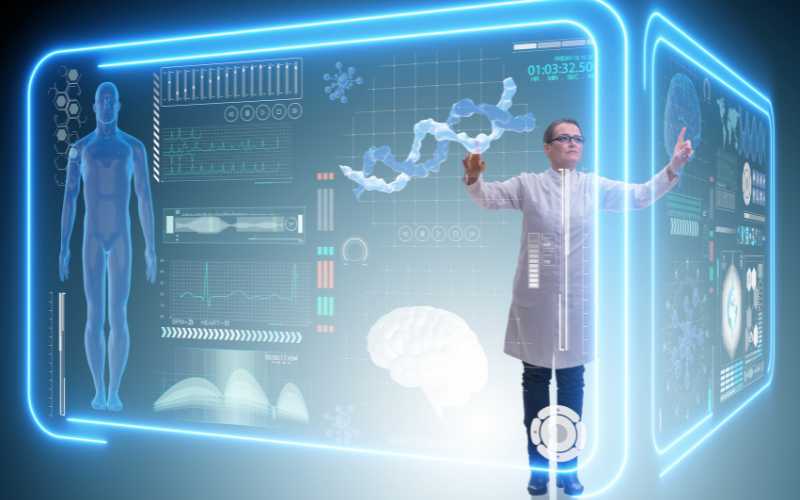AI or Artificial Intelligence is a ground-breaking innovation. It has tremendous potential, exploring of which across a wide spectrum is going to reshape the world in a way far beyond our fertile imagination.
Future of AI technology looks promising. Research on AI has registered tremendous progress and will continue to do so in coming years, making artificial intelligence a part and parcel of our everyday life in a way that was never actualized or even conceptualised before.
In this article, we will cover the possibilities and promises that AI holds in the near future.
The Power of Personalization
AI is on the cusp of making a significant breakthrough in the niche of highly personalised digital assistance. Due to our increasing engagement with AI platforms, it is important for the new-age technology to develop a good understanding of users, including our needs, behavioural patterns and preferences so that it can serve us in a human-like way.
Machine Learning from User Data
AI assistants like Alexa, Cortana and Siri are designed to explore advanced deep learning algorithms to study voluminous user-generated data for analysis and assessment.
By 2025, AI-enabled deep learning progress will encompass text and voice conversations, purchase patterns, search histories, media preferences and many more. Based on data analysis, AI will create hyper-personalised profiles for every user.
Feeling the Pulse of Your Needs and Choices
Supported by unique user profiles, the next generation AI will proactively suggest ideal holiday destinations based on your search or past travel histories and can also alert you to next calendar deadlines for important works.
Some experts think that in the coming days, AI will be able to offer a balmy touch in your distress, by enabling it to read your moods and emotions.
A Talking Robot
Personalization is incomplete without interaction and for that to happen, understanding and speaking a user’s lingo is necessary. By 2025, machine assistance may imitate your language, diction, communication style, speech patterns, favourite words, empathetic and emphasised voice tone, and conversational cues.
This enhanced level of interaction will make AI sound like a human-like companion, elevating it from the level of just another machine program.
Safety & Security
AI applications in 2025 will tighten your home’s safety and security through deep learning, sensor fusion and computer vision. These facilities will also be extended to the transport system, making it automatic, more efficient and sensitive towards commuters’ safety. .
Birthing the Idea of Automation
Expect to see slow automatic shuttles and delivery bots transporting goods and passengers on schools, college campuses, corporate zones, public spaces by 2025.
Remotely regulated AI-driven trucks may come on the highway to transport freight across the country.
Auto and tech companies with pioneering ideas are planning to launch fully self-driving cars in specific regions. These cars will have no pedals or steering wheels. This is intended to figure out the measurable efficacy of a fully automated system.
Smart Home
AI is designed to make your home super smart, by proactively managing your home appliances based on your real-time energy data and schedules. For example, ventilation, lighting and heating systems may optimise themselves for the best results.
Advanced computerised vision systems may strengthen your home security, with AI putting caretakers on high alert about suspicious activities.
Some futuristic ideas even include AI-assisted home health care professionals and robot butlers.

Modernising Healthcare
The Healthcare sector is one of the most favourite AI research areas. AI is predicted to transform the healthcare sector by 2025. From accuracy and optimization in drug delivery to enhanced diagnosis to providing personalised treatment suggestions, AI-enabled technologies will immensely benefit both medical practitioners and patients.
The AI system is poised to emulate human expertise in many fields including radiology by applying deep learning modules and medical imaging datasets.
Intelligent diagnostics, with the power of computer vision, promises accurate detection of abnormalities and scan analysis while minimising diagnostic errors.
AI will also bring about changes in pathology by automating microscope slide examination.
AI-supported automation also holds promises in drug discovery by identifying potential new molecules through deep and wide neural networks fed with extensive molecular data.
By 2025, AI will play a role in developing cures for many challenging diseases by identifying anatomical interactions that are not visible to human eyes. Applying AI in clinical trials will improve outcomes.
The Green Revolution
AI will be used to reshape our thought construct in generating clean and sustainable energy with increasingly reduced environmental impact. The AI-supported green revolution will optimise renewable energy while making breakthroughs in agricultural methods.
Empowering Industries
AI is set to improve productivity by enabling hyper–automation of physical and cognitive tasks.
Advanced computer vision, machine learning, robotics, and other pioneering AI technologies hold promises for seamless coordination to take factory automation to a new high by 2025.
Industrial robots may self-identify and rectify issues by using IoT sensors while AI-augmented intelligence will monitor product lines for resource optimization, subject to future customer requirements.
AI-driven industries promise cost minimization and productivity maximisation through safety and resource efficiency.
Novel Battery Technologies
AI brings hope for developing novel battery technologies through molecular simulation and modelling. AI may contribute to discovery of battery anodes and cathodes packed with affordable but high energy densities, by narrowing down design options.
This may accelerate and revolutionise the adoption of large-scale renewable energy storage, crucial for 100% decarbonization, which will help in reducing global warming.

